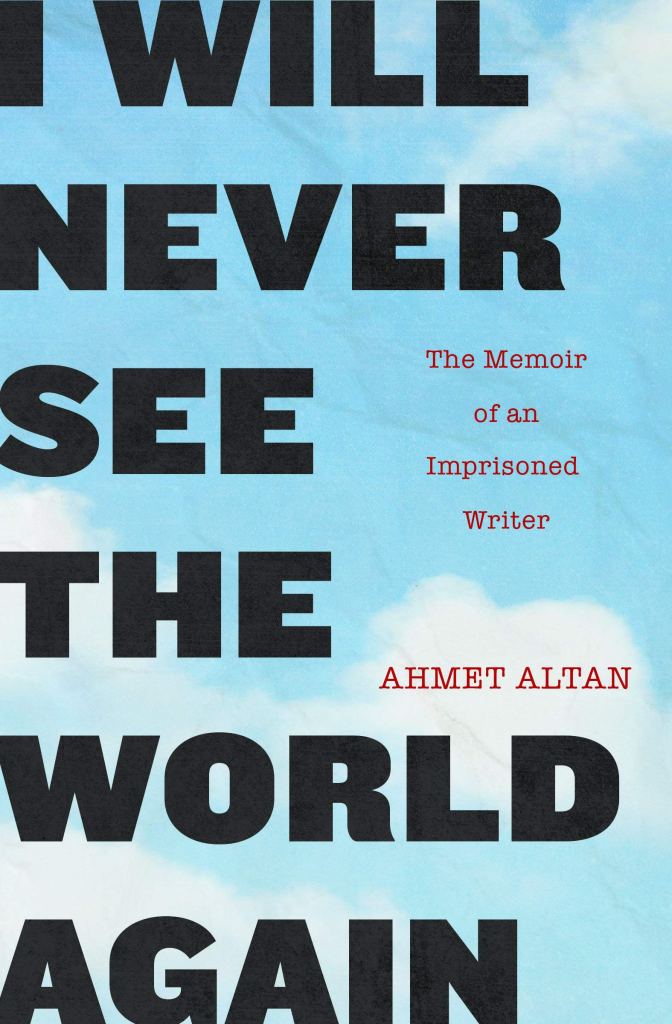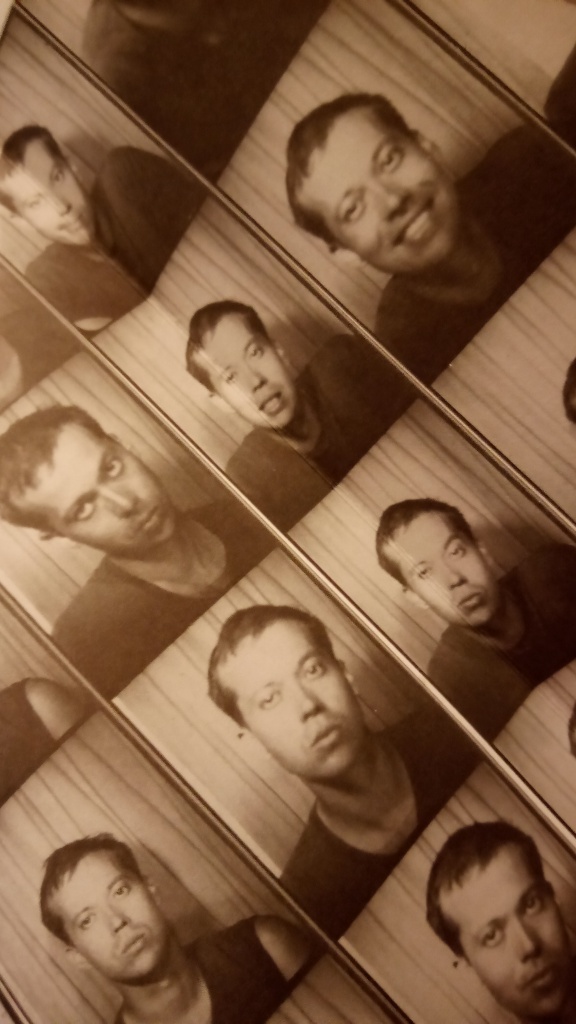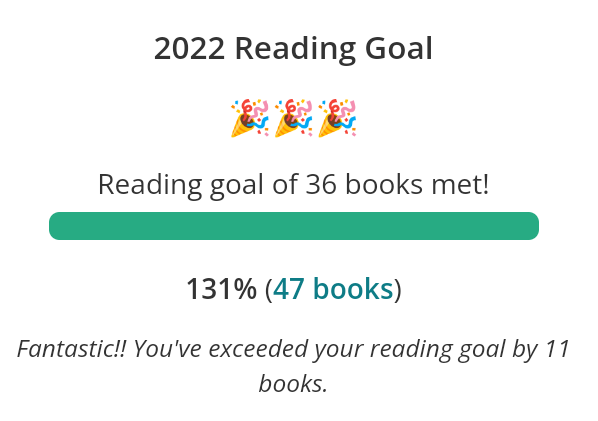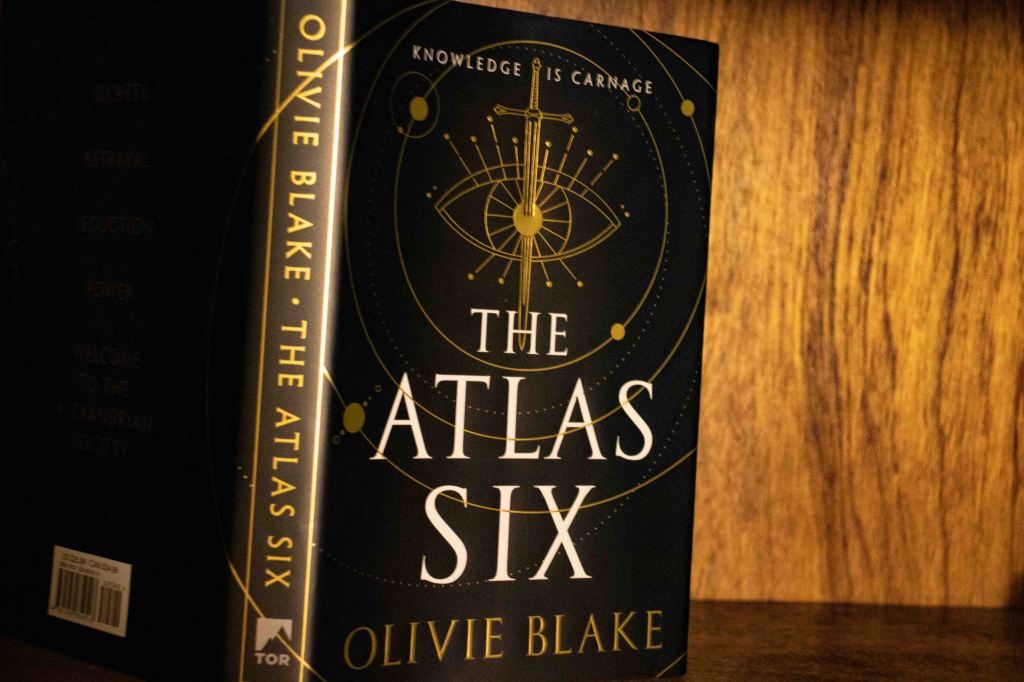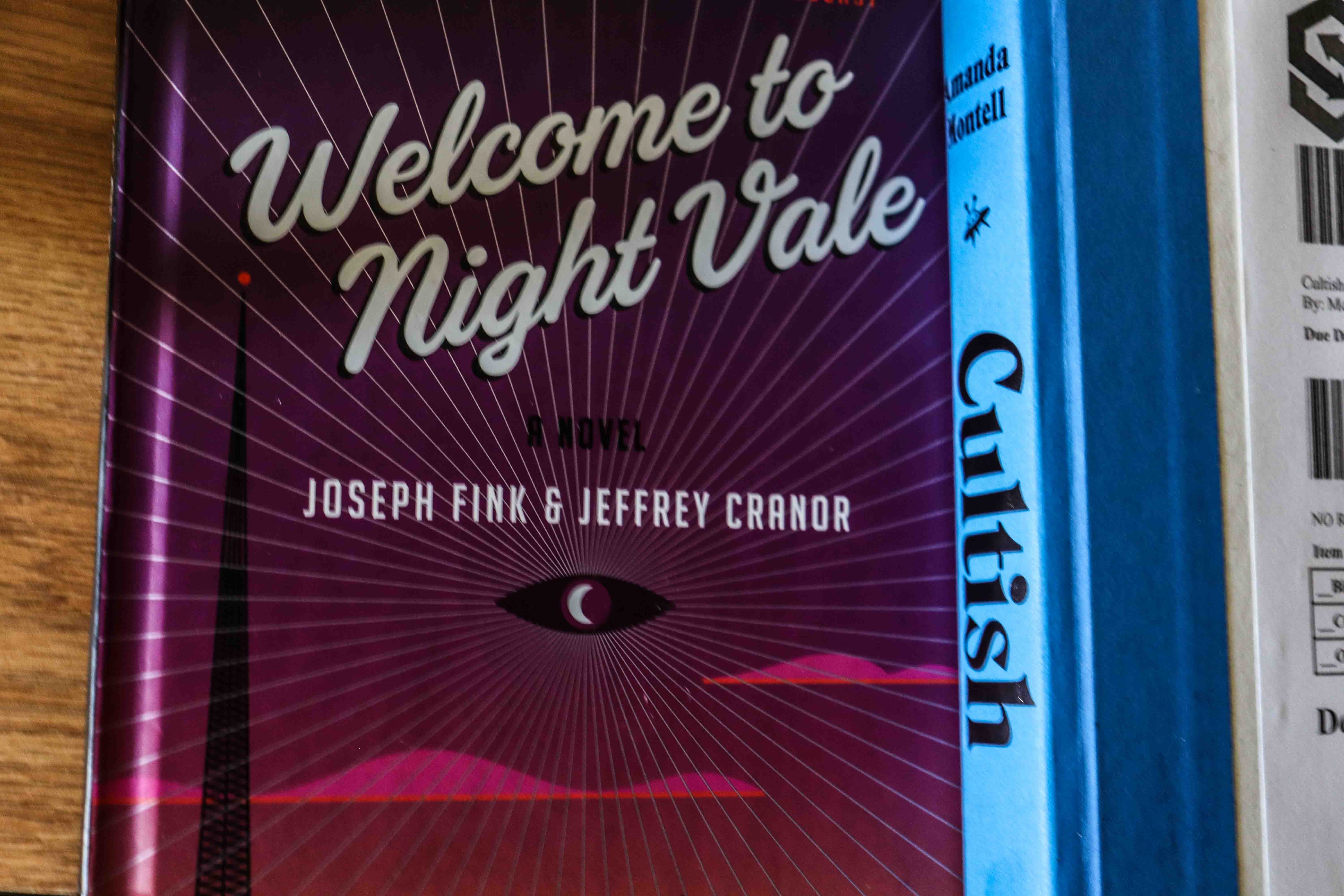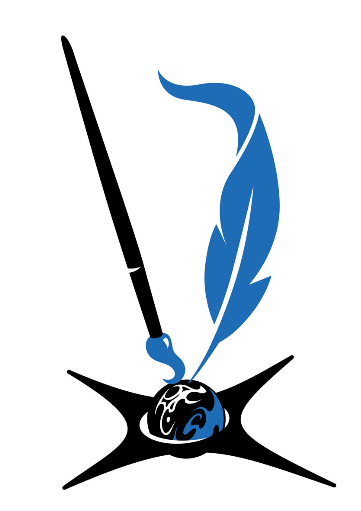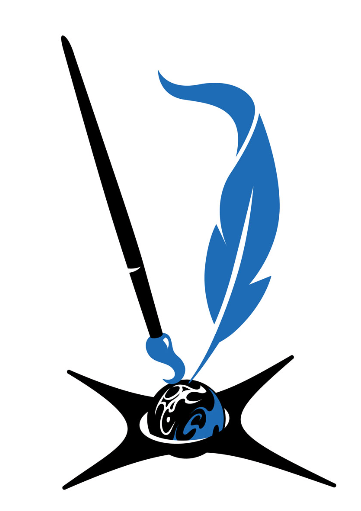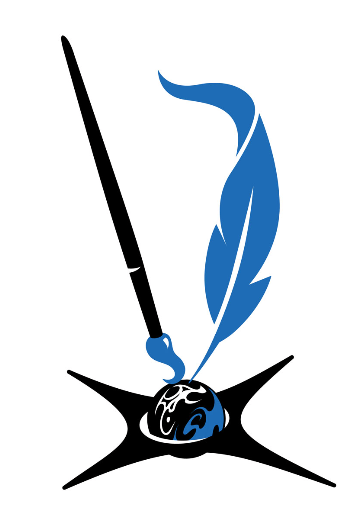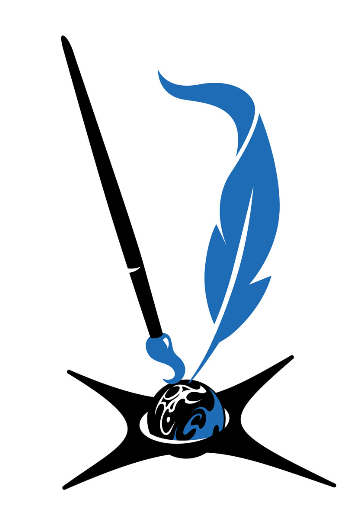It’s that time of the year, when uni students are back at school, desperately trying to establish a routine, oblivious to the fact that neurodivergency makes it neurochemically impossible. I did this last year, and since then I’ve read X books… Can you spot the difference?
1.) 1984 by George Orwell- DNF
2.) The Adventures of Huckleberry Finn by Mark Twain
3.) Alice in Wonderland by Lewis Carroll 6/12
4.) The Amazing Adventures of Kavalier & Clay by Michael Chabon
5.) An American Tragedy by Theodore Dreiser
6.) Angela’s Ashes by Frank McCourt
7.) Anna Karenina by Leo Tolstoy
8.) Anne Frank: The Diary of a Young Girl by Anne Frank 10/12 9.) Archidamian War by Donald Kagan
10.) The Art of Fiction by Henry James
11.) The Art of War by Sun Tzu
12.) As I Lay Dying by William Faulkner
13.) Atonement by Ian McEwan
14.) Autobiography of a Face by Lucy Grealy
15.) The Awakening by Kate Chopin
16.) Babe by Dick King-Smith
17.) Backlash: The Undeclared War Against American Women by Susan Faludi
18.) Balzac and the Little Chinese Seamstress by Dai Sijie
19.) Bel Canto by Ann Patchett
20.) The Bell Jar by Sylvia Plath 12/12 LOVE
21.) Beloved by Toni Morrison
22.) Beowulf: A New Verse Translation by Seamus Heaney
23.) The Bhagava Gita
24.) The Bielski Brothers: The True Story of Three Men Who Defied the Nazis, Built a Village in the Forest, and Saved 1,200 Jews by Peter Duffy
25.) Bitch in Praise of Difficult Women by Elizabeth Wurtzel
26.) A Bolt from the Blue and Other Essays by Mary McCarthy
27.) Brave New World by Aldous Huxley
28.) Brick Lane by Monica Ali
29.) Bridgadoon by Alan Jay Lerner 30.) Candide by Voltaire
31.) The Canterbury Tales by Chaucer
32.) Carrie by Stephen King 6/12
33.) Catch-22 by Joseph Heller
34.) The Catcher in the Rye by J. D. Salinger 9/12 Well written, but misogynistic
35.) Charlotte’s Web by E. B. White 11/12 SAD.
36.) The Children’s Hour by Lillian Hellman
37.) Christine by Stephen King
38.) A Christmas Carol by Charles Dickens
39.) A Clockwork Orange by Anthony Burgess
40.) The Code of the Woosters by P.G. Wodehouse
41.) The Collected Short Stories by Eudora Welty
42.) The Collected Stories of Eudora Welty by Eudora Welty
43.) A Comedy of Errors by William Shakespeare
44.) Complete Novels by Dawn Powell
45.) The Complete Poems by Anne Sexton
46.) Complete Stories by Dorothy Parker
47.) A Confederacy of Dunces by John Kennedy Toole
48.) The Count of Monte Cristo by Alexandre Dumas Père
49.) Cousin Bette by Honor’e de Balzac
50.) Crime and Punishment by Fyodor Dostoevsky
51.) The Crimson Petal and the White by Michel Faber
52.) The Crucible by Arthur Miller
53.) Cujo by Stephen King 8/12
54.) The Curious Incident of the Dog in the Night-Time by Mark Haddon
55.) Daughter of Fortune by Isabel Allende
56.) David and Lisa by Dr Theodore Issac Rubin M.D
57.) David Copperfield by Charles Dickens
58.) The Da Vinci Code by Dan Brown
59.) Dead Souls by Nikolai Gogol
60.) Demons by Fyodor Dostoyevsky
61.) Death of a Salesman by Arthur Miller
62.) Deenie by Judy Blume
63.) The Devil in the White City: Murder, Magic, and Madness at the Fair that Changed America by Erik Larson started but had to return to the library
64.) The Dirt: Confessions of the World’s Most Notorious Rock Band by Tommy Lee
65.) The Divine Comedy by Dante
66.) The Divine Secrets of the Ya-Ya Sisterhood by Rebecca Wells
67.) Don Quijote by Cervantes
68.) Driving Miss Daisy by Alfred Uhrv
69.) Dr. Jekyll & Mr. Hyde by Robert Louis Stevenson Good, I guess? It wasn’t enthralling or anything but it had it’s moments.
70.) Edgar Allan Poe: Complete Tales & Poems by Edgar Allan Poe I read this in the back of His Hideous Heart and found out that my favourite story is The Pit & The Pendulum
71.) Eleanor Roosevelt by Blanche Wiesen Cook
72.) The Electric Kool-Aid Acid Test by Tom Wolfe
73.) Ella Minnow Pea: A Novel in Letters by Mark Dunn
74.) Eloise by Kay Thompson
75.) Emily the Strange, Roger Reger, 12/12 LOVE
76.) Emma, Jane Austen
77.) Empire Falls, Richard Russo
78.) Encyclopedia Brown: Boy Detective, Donald J. Sobol
79.) Ethan Frome, Edith Wharton
80.) Ethics, Spinoza
81.) Europe through the Back Door, 2003, Rick Steves
82.) Eva Luna, Isabel Allende
83.) Everything Is Illuminated, Jonathan Safran Foer
84.) Extravagance by Gary Krist
85.) Fahrenheit 451, Ray Bradbury 10/12
86.) Fahrenheit 9/11 by Michael Moore
87.) The Fall of the Athenian Empire by Donald Kagan
88.) Fat Land: How Americans Became the Fattest People in the World, Greg Critser
89.) Fear and Loathing in Las Vegas, Hunter S. Thompson 90.) The Fellowship of the Ring: Book 1 of The Lord of the Ring, J. R. R.
Tolkien, 7/12
91.) Fiddler on the Roof, Joseph Stein
92.) The Five People You Meet in Heaven, Mitch Albom
93.) Finnegan’s Wake, James Joyce
94.) Fletch, Gregory McDonald
95.) Flowers for Algernon, by Daniel Keyes
96.) The Fortress of Solitude, Jonathan Lethem
97.) The Fountainhead, Ayn Rand
98.) Frankenstein, Mary Shelley
99.) Franny and Zooey, J. D. Salinger, 10/12
100.) Freaky Friday, Mary Rodgers 9/12
101.) Galapagos, Kurt Vonnegut
102.) Gender Trouble, Judith Butler
103.) George W. Bushism: The Slate Book of the Accidental Wit and Wisdom of our
43rd President, Jacob Weisberg- Never, Ever reading this one!
104.) Gidget by Fredrick Kohner
105.) Girl, Interrupted by Susanna Kaysen
106.) The Gnostic Gospels by Elaine Pagels
107.) The Godfather: Book 1 by Mario Puzo
108.) The God of Small Things by Arundhati Roy
109.) Goldilocks and the Three Bears by Alvin Granowsky 8/12
110.) Gone with the Wind by Margaret Mitchell
111.) The Good Soldier by Ford Maddox Ford
112.) The Gospel According to Judy Bloom
113.) The Graduate by Charles Webb
114.) The Grapes of Wrath by John Steinbeck
115.) The Great Gatsby by F. Scott Fitzgerald 4/12 Want to reread to see if being nonmandatory helps
116.) Great Expectations by Charles Dickens
117.) The Group by Mary McCarthy
118.) Hamlet by William Shakespeare 8/12– My favourite Shakespeare! 121.) A Heartbreaking Work of Staggering Genius by Dave Eggers 9/12
122.) Heart of Darkness by Joseph Conrad
123.) Helter Skelter: The True Story of the Manson Murders by Vincent Bugliosi and
Curt Gentry
124.) Henry IV, part I by William Shakespeare
125.) Henry IV, part II by William Shakespeare
126.) Henry V by William Shakespeare
127.) High Fidelity by Nick Hornby
128.) The History of the Decline and Fall of the Roman Empire by Edward Gibbon
129.) Holidays on Ice: Stories by David Sedaris 130.) The Holy Barbarians by Lawrence Lipton
131.) House of Sand and Fog by Andre Dubus III (Lpr)
132.) The House of the Spirits by Isabel Allende
133.) How to Breathe Underwater by Julie Orringer
134.) How the Grinch Stole Christmas by Dr. Seuss 12/12
135.) How the Light Gets in by M. J. Hyland
136.) Howl by Allen Gingsburg
137.) The Hunchback of Notre Dame by Victor Hugo
138.) The Iliad by Homer read sections of it for a class, and some parts were confusing- why was Achilles in the Underworld but Heracles in Olympus?
139.) I’m with the Band by Pamela des Barres
140.) In Cold Blood by Truman Capote
141.) Inferno by Dante Also read for a class- could be boring in parts but others were super descriptive
142.) Inherit the Wind by Jerome Lawrence and Robert E. Lee
143.) Iron Weed by William J. Kennedy
144.) It Takes a Village by Hillary Clinton
145.) Jane Eyre by Charlotte Brontë
146.) The Joy Luck Club by Amy Tan
147.) Julius Caesar by William Shakespeare
148.) The Jumping Frog by Mark Twain
149.) The Jungle by Upton Sinclair
150.) Just a Couple of Days by Tony Vigorito
151.) The Kitchen Boy: A Novel of the Last Tsar by Robert Alexander
152.) Kitchen Confidential: Adventures in the Culinary Underbelly by Anthony Bourdain
153.) The Kite Runner by Khaled Hosseini
154.) Lady Chatterleys’ Lover by D. H. Lawrence
155.) The Last Empire: Essays 1992-2000 by Gore Vidal
156.) Leaves of Grass by Walt Whitman
157.) The Legend of Bagger Vance by Steven Pressfield
158.) Less Than Zero by Bret Easton Ellis
159.) Letters to a Young Poet by Rainer Maria Rilke
160.) Lies and the Lying Liars Who Tell Them by Al Franken 161.) Life of Pi by Yann Martel 8/12
162.) Little Dorrit by Charles Dickens
163.) The Little Locksmith by Katharine Butler Hathaway
164.) The Little Match Girl by Hans Christian Andersen
165.) Little Women by Louisa May Alcott
166.) Living History by Hillary Rodham Clinton
167.) Lord of the Flies by William Golding 0/12 HATE, BURN ALL COPIES
168.) The Lottery: And Other Stories by Shirley Jackson
169.) The Lovely Bones by Alice Sebold
170.) The Love Story by Erich Segal
171.) Macbeth by William Shakespeare
172.) Madame Bovary by Gustave Flaubert
173.) The Manticore by Robertson Davies
174.) Marathon Man by William Goldman
175.) The Master and Margarita by Mikhail Bulgakov
176.) Memoirs of a Dutiful Daughter by Simone de Beauvoir
177.) Memoirs of General W. T. Sherman by William Tecumseh Sherman
178.) Me Talk Pretty One Day by David Sedaris
179.) The Meaning of Consuelo by Judith Ortiz Cofer 180.) Mencken’s Chrestomathy by H. R. Mencken
181.) The Merry Wives of Windsdor by William Shakespeare
182.) The Metamorphosis by Franz Kafka
183.) Middlesex by Jeffrey Eugenides
184.) The Miracle Worker by William Gibson
185.) Moby Dick by Herman Melville
186.) The Mojo Collection: The Ultimate Music Companion by Jim Irvin
187.) Moliere: A Biography by Hobart Chatfield Taylor
188.) A Monetary History of the United States by Milton Friedman
189.) Monsieur Proust by Celeste Albaret
190.) A Month Of Sundays: Searching For The Spirit And My Sister by Julie Mars
191.) A Moveable Feast by Ernest Hemingway
192.) Mrs. Dalloway by Virginia Woolf
193.) Mutiny on the Bounty by Charles Nordhoff and James Norman Hall
194.) My Lai 4: A Report on the Massacre and It’s Aftermath by Seymour M. Hersh
195.) My Life as Author and Editor by H. R. Mencken
196.) My Life in Orange: Growing Up with the Guru by Tim Guest
197.) Myra Waldo’s Travel and Motoring Guide to Europe, 1978 by Myra Waldo
198.) My Sister’s Keeper by Jodi Picoult
199.) The Naked and the Dead by Norman Mailer
200.) The Name of the Rose by Umberto Eco
201.) The Namesake by Jhumpa Lahiri – DNF, enjoy the writing style but hate babies. Loved In Other Words by same author.
202.) The Nanny Diaries by Emma McLaughlin
203.) Nervous System: Or, Losing My Mind in Literature by Jan Lars Jensen
204.) New Poems of Emily Dickinson by Emily Dickinson 12/12 I LOVE THIS WOMAN.
205.) The New Way Things Work by David Macaulay
206.) Nickel and Dimed by Barbara Ehrenreich
207.) Night by Elie Wiesel
208.) Northanger Abbey by Jane Austen
209.) The Norton Anthology of Theory and Criticism by William E. Cain, Laurie A. Finke, Barbara E. Johnson, John P. McGowan
210.) Novels 1930-1942: Dance Night/Come Back to Sorrento, Turn, Magic
Wheel/Angels on Toast/A Time to be Born by Dawn Powell
211.) Notes of a Dirty Old Man by Charles Bukowski
212.) Of Mice and Men by John Steinbeck 1/12 DESTROY THIS BOOK
213.) Old School by Tobias Wolff
214.) On the Road by Jack Kerouac
215.) One Flew Over the Cuckoo’s Nest by Ken Kesey
216.) One Hundred Years of Solitude by Gabriel Garcia Marquez DNF F this sexist sex book
217.) The Opposite of Fate: Memories of a Writing Life by Amy Tan- rereleased as Where The Past Begins
218.) Oracle Night by Paul Auster
219.) Oryx and Crake by Margaret Atwood 12/12
220.) Othello by Shakespeare
221.) Our Mutual Friend by Charles Dickens
222.) The Outbreak of the Peloponnesian War by Donald Kagan
223.) Out of Africa by Isac Dineson
224.) The Outsiders by S. E. Hinton
225.) A Passage to India by E.M. Forster
226.) The Peace of Nicias and the Sicilian Expedition by Donald Kagan
227.) The Perks of Being a Wallflower by Stephen Chbosky LOVE
228.) Peyton Place by Grace Metalious
229.) The Picture of Dorian Gray by Oscar Wilde 12/12 DARK LOVE 230.) Pigs at the Trough by Arianna Huffington
231.) Pinocchio by Carlo Collodi
232.) Please Kill Me: The Uncensored Oral History of Punk Legs McNeil and Gillian
McCain
233.) The Polysyllabic Spree by Nick Hornby
234.) The Portable Dorothy Parker by Dorothy Parker
235.) The Portable Nietzche by Fredrich Nietzche
236.) The Price of Loyalty: George W. Bush, the White House, and the Education of Paul O’Neill by Ron Suskind
237.) Pride and Prejudice by Jane Austen 9/12
238.) Property by Valerie Martin
239.) Pushkin: A Biography by T. J. Binyon 240.) Pygmalion by George Bernard Shaw
241.) Quattrocento by James Mckean
242.) A Quiet Storm by Rachel Howzell Hall
243.) Rapunzel by Grimm Brothers 7/12
244.) The Raven by Edgar Allan Poe 9/12
245.) The Razor’s Edge by W. Somerset Maugham
246.) Reading Lolita in Tehran: A Memoir in Books by Azar Nafisi DNF- haven’t read enough books referenced
247.) Rebecca by Daphne du Maurier
248.) Rebecca of Sunnybrook Farm by Kate Douglas Wiggin
249.) The Red Tent by Anita Diamant 250.) Rescuing Patty Hearst: Memories From a Decade Gone Mad by Virginia Holman
251.) The Return of the King by J. R. R. Tolkien
252.) R Is for Ricochet by Sue Grafton
253.) Rita Hayworth by Stephen King
254.) Robert’s Rules of Order by Henry Robert
255.) Roman Holiday by Edith Wharton
256.) Romeo and Juliet by William Shakespeare 1/12 SEEK AND DESTROY
257.) A Room of One’s Own by Virginia Woolf
258.) A Room with a View by E. M. Forster
259.) Rosemary’s Baby by Ira Levin
260.) The Rough Guide to Europe, 2003 Edition
261.) Sacred Time by Ursula Hegi
262.) Sanctuary by William Faulkner
263.) Savage Beauty: The Life of Edna St. Vincent Millay by Nancy Milford
264.) Say Goodbye to Daisy Miller by Henry James
265.) The Scarecrow of Oz by Frank L. Baum
266.) The Scarlet Letter by Nathaniel Hawthorne
267.) Seabiscuit: An American Legend by Laura Hillenbrand
268.) The Second Sex by Simone de Beauvoir
269.) The Secret Life of Bees by Sue Monk Kidd 9/12 270.) Secrets of the Flesh: A Life of Colette by Judith Thurman
271.) Selected Letters of Dawn Powell: 1913-1965 by Dawn Powell
272.) Sense and Sensibility by Jane Austen
273.) A Separate Peace by John Knowles
274.) Several Biographies of Winston Churchill
275.) Sexus by Henry Miller
276.) The Shadow of the Wind by Carlos Ruiz Zafon
277.) Shane by Jack Shaefer
278.) The Shining by Stephen King
279.) Siddhartha by Hermann Hesse
280.) S Is for Silence by Sue Grafton
281.) Slaughter-house Five by Kurt Vonnegut
282.) Small Island by Andrea Levy
283.) Snows of Kilimanjaro by Ernest Hemingway
284.) Snow White and Rose Red by Grimm Brothers 8/12
285.) Social Origins of Dictatorship and Democracy: Lord and Peasant in the Making of the Modern World by Barrington Moore
286.) The Song of Names by Norman Lebrecht
287.) Song of the Simple Truth: The Complete Poems of Julia de Burgos by Julia de Burgos
288.) The Song Reader by Lisa Tucker
289.) Songbook by Nick Hornby 290.) The Sonnets by William Shakespeare
291.) Sonnets from the Portuegese by Elizabeth Barrett Browning
292.) Sophie’s Choice by William Styron- DNF during HS, might reattempt
293.) The Sound and the Fury by William Faulkner
294.) Speak, Memory by Vladimir Nabokov
295.) Stiff: The Curious Lives of Human Cadavers by Mary Roach-Took a long time, but was full of fascinating information
296.) The Story of My Life by Helen Keller
297.) A Streetcar Named Desiree by Tennessee Williams
298.) Stuart Little by E. B. White 7/12 299.) Sun Also Rises by Ernest Hemingway
300.) Swann’s Way by Marcel Proust
301.) Swimming with Giants: My Encounters with Whales, Dolphins and Seals by Anne Collett
302.) Sybil by Flora Rheta Schreiber
303.) A Tale of Two Cities by Charles Dickens
304.) Tender Is The Night by F. Scott Fitzgerald
305.) Term of Endearment by Larry McMurtry
306.) Time and Again by Jack Finney
307.) The Time Traveler’s Wife by Audrey Niffenegger
308.) To Have and Have Not by Ernest Hemingway
309.) To Kill a Mockingbird by Harper Lee 4/12
310.) The Tragedy of Richard III by William Shakespeare
311.) A Tree Grows in Brooklyn by Betty Smith
312.) The Trial by Franz Kafka
313.) The True and Outstanding Adventures of the Hunt Sisters by Elisabeth Robinson
314.) Truth & Beauty: A Friendship by Ann Patchett
315.) Tuesdays with Morrie by Mitch Albom
316.) Ulysses by James Joyce
317.) The Unabridged Journals of Sylvia Plath 1950-1962 by Sylvia Plath
318.) Uncle Tom’s Cabin by Harriet Beecher Stowe
319.) Unless by Carol Shields 320.) Valley of the Dolls by Jacqueline Susann
321.) The Vanishing Newspaper by Philip Meyers
322.) Vanity Fair by William Makepeace Thackeray
323.) Velvet Underground’s The Velvet Underground and Nico (Thirty Three and a Third series) by Joe Harvard
324.) The Virgin Suicides by Jeffrey Eugenides
325.) Waiting for Godot by Samuel Beckett
326.) Walden by Henry David Thoreau 3/12 BORING
327.) Walt Disney’s Bambi by Felix Salten
328.) War and Peace by Leo Tolstoy
329.) We Owe You Nothing – Punk Planet: The Collected Interviews edited by Daniel Sinker
330.) What Colour is Your Parachute? 2005 by Richard Nelson Bolles
331.) What Happened to Baby Jane by Henry Farrell
332.) When the Emperor Was Divine by Julie Otsuka
333.) Who Moved My Cheese? Spencer Johnson
334.) Who’s Afraid of Virginia Woolf by Edward Albee
335.) Wicked: The Life and Times of the Wicked Witch of the West by Gregory Maguire DNF
336.) The Wizard of Oz by Frank L. Baum 7/12
337.) Wuthering Heights by Emily Brontë
338.) The Yearling by Marjorie Kinnan Rawlings
339.) The Year of Magical Thinking by Joan Didion
